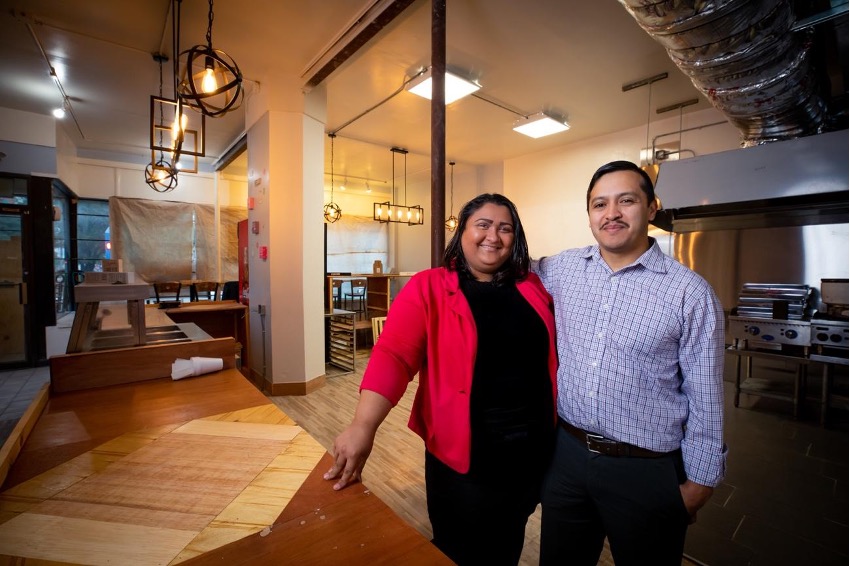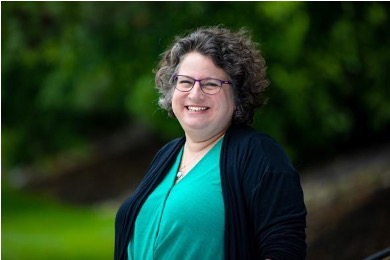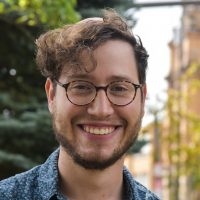By Sinegugu Gasa, Cleveland Foundation Public Service Fellow for Community Narrative and Engagement
Since 1904, the Hebrew Free Loan Association (HFLA) has provided interest-free loans to Northeast Ohio residents, promoting equitable access to capital, economic self-sufficiency as well as growth and prosperity in our community. A longtime grantee and community partner of the Cleveland Foundation, I recently spoke with Michal Marcus, executive director of HFLA, to learn more about the organization’s work and impact in Greater Cleveland.
Sinegugu Gasa (SG): Can you tell us more about HFLA’s mission and how you make an impact?
Michal Marcus (MM): HFLA’s mission is to create a more equitable Northeast Ohio by providing equal access to capital for residents. We provide loans through the generosity of community members who understand the importance of interest-free and accessible loans for all. Our donors have a great sense of awareness that when everyone does well, we can all prosper as a collective.
SG: What is an interest-free loan? How do HFLA loans differ from traditional avenues of lending money to those who need it?
MM: Our way of providing interest-free loans is informed by the Jewish principle that you do not charge interest to those in need. Although we operate under Jewish philosophy, we are non-sectarian and serve those from all faiths. We help individuals who do not have access to traditional avenues to loans so that they can grow to support themselves. What you borrow is what you return. We are relationship lenders–loan decisions are based on a person’s full financial picture rather than a credit score, and we work with people to ensure successful repayment. Over 70% of our borrowers are individuals with low- to moderate- income, and the majority of our borrowers are women and People of Color.
SG: Why is it important for HFLA to exist in Northeast Ohio?
MM: Predatory lending is a big problem. Many of the people that we serve are not eligible for financial services anywhere else, so they end up relying on predatory loans. These types of loan agencies charge very high and unfair interest for loans, taking away equity from borrowers. HFLA serves as a first rung for people to improve their economic standing and improve their overall financial situation. It is often that first opportunity at an equitable loan that can uplift people into much better financial circumstances.
SG: Can you share more about the types of loans you provide?
MM: We provide business, education and personal loans. We have also created two new loan programs. One is a small credit-building program for those who are credit invisible or have no credit. The other is a program that will focus on providing affordable car loans. We have seen an increase in predatory car loans, with upwards of 18%-20% interest rates. We are working on a program that would provide fair and accessible interest-free car loans and work with individuals to get them out of a predatory lending agreement.
SG: Do you have any events planned?
MM: Throughout 2022, HFLA will continue to tell the story of our borrowers, highlighting the barriers that prevent them from reaching financial security. The “Cost Burden” will examine the daily financial decisions that members of our community have to make and how HFLA can work with individuals and families to access fair financial resources in Northeast Ohio. The series will include local community conversations looking at various aspects of the overall theme, examining the added cost burden put on working Americans. The series will culminate with a fall event on Oct. 26, 2022 that will include Jonathan Morduch, professor of public policy and economics at the Wagner Graduate School at New York University and co-author of “The Financial Diaries: How American families cope in a world of uncertainty.”
You can learn more about the Hebrew Free Loan Association and support their work by visiting their website here.




